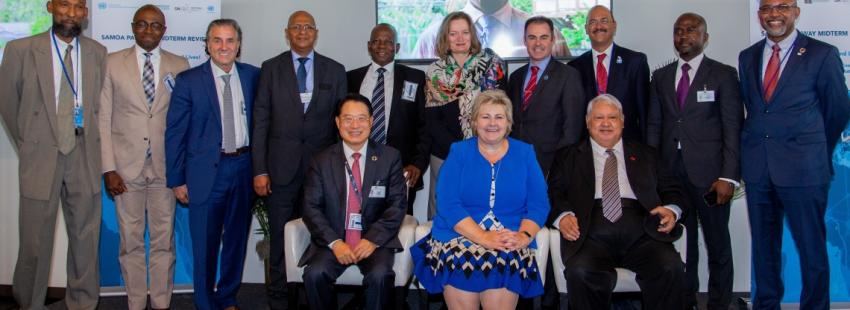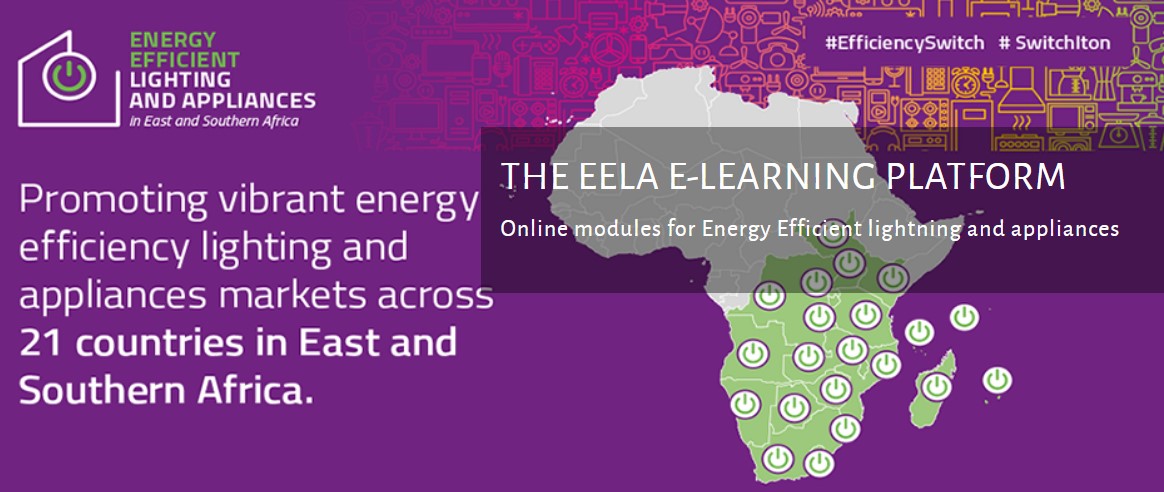SAMOA Pathway Midterm Review: “Mission Transforming Island Lives! The Network of Regional Sustainable Energy Centres for Small Island Developing States”

The event first reviewed the progress of the Samoa Pathway Partnership, which UNIDO and SIDS DOCK initiated – with the financial support of Austria, Norway and Spain during the Third United Nations International Conference on Small Island Developing States (SIDS) in September 2014. The partnership has resulted in the establishment of regional sustainable energy centres for SIDS in Africa, the Caribbean, the Pacific and the Indian Ocean. The centers play also an important role in the recently developed UNIDO SIDS Strategy covering the period 2019 to 2025.
“I am confident that our first dedicated SIDS strategy for 2019-2025 will serve as a guiding framework to steer results-based interventions and partnerships with SIDS and other development partners”, said UNIDO Director General LI Yong.
“Education and long-term capacities of SIDS people to implement the energy and climate transformation are key”, stressed Keith Mitchell, the Prime Minister of Grenada and SIDS DOCK President. “The established network of centers will contribute to build these capacities.
“The network of regional centres as an example for a “genuine” and “durable” SAMOA Pathway partnership. It is a testimony to the ownership and “climate ambition” that SIDS are willing to assume in the global climate and energy transformation.”, said H.E. Tuilaepa Aiono Sailele Malielegaoi, Prime Minister of Samoa.
“Norway and the Small Island Developing States are strong partners on climate change; at the Climate Action Summit on Monday, we demonstrated this by committing to increasing our ambitions. Now it is time for action and implementation and working together in partnership”, said Norwegian Prime Minister Erna Solberg.
“Austria considers the continued support of the Global Network of Regional Sustainable Energy Centres of utmost importance. Access to affordable, reliable, sustainable and modern energy goes hand in hand with job creation and a better life for all”, said Ambassador Desirée Schweitzer, Vice-Minister for Development Cooperation.
“Spain is a long-standing contributor to global efforts to address global warming and to the fulfilment of the Agenda 2030, including the goals and process of the Samoa Pathway in support to the SIDS.”, Mr. Fernando Martín Valenzuela Marzo, State Secretary for Foreign Affairs, Spain.
During the event, the Directors of the regional centers presented priority programs to the attending high-level officials from SIDS and developing partners. The proposals included an investment program for the African SIDS Cape Verde, Guinea Bissau and Sao Tome and Principe, an e-mobility program for the Pacific islands, as well as an Energy Modelling and Renewable Energy Integration Virtual Laboratory for the Caribbean.
The regional sustainable energy centers operate under the umbrella of the Global Network of Regional Sustainable Energy Centres (GN-SEC) platform, which is hosted by UNIDO in Vienna. The network mitigates barriers for the uptake of integrated and inclusive sustainable energy and climate technology markets in developing countries. It creates a “makerspace” for south-south cooperation and spill-over effects, joint learning, harmonized policies and standards, joint qualification and certification frameworks for products and services. UNIDO provides technical services and mentoring to the regional economic communities to establish and operate these centers.
Attended by high-level delegates, including 2 Presidents, 8 Prime Ministers, 1 Deputy Prime Minister and 10 Ministers, the event reiterated the importance of the Global Network of Regional Sustainable Energy Centers (GN-SEC).







